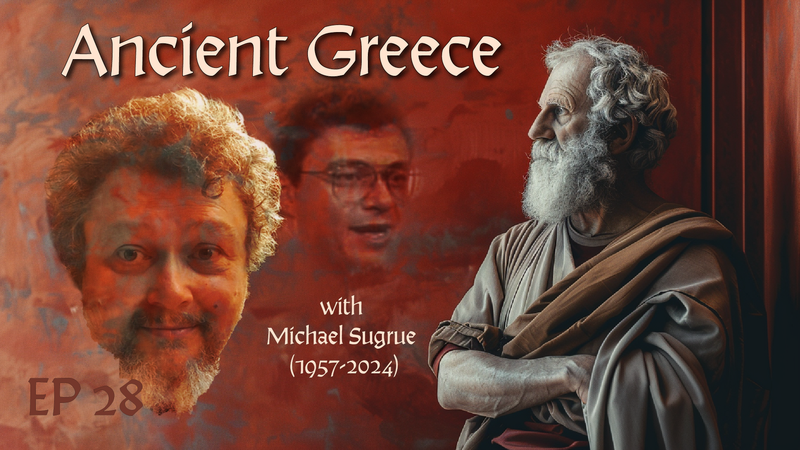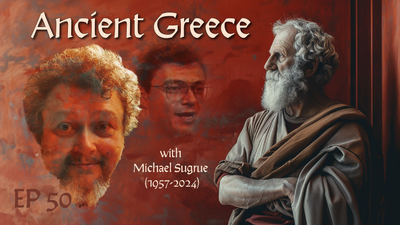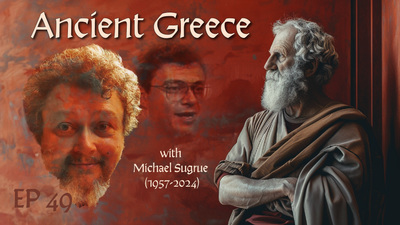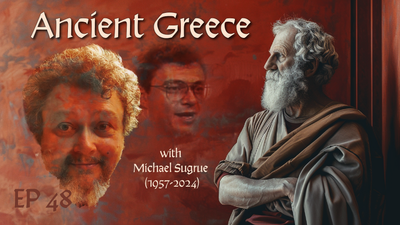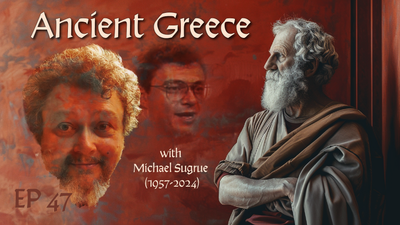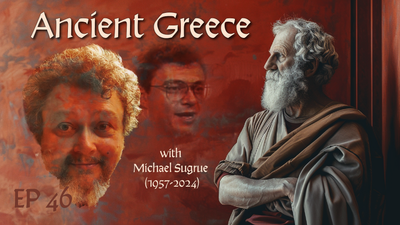This week, we turn our attention to one of the most profound questions of ancient philosophy: the tension between fate and human freedom. Plato’s dialogues often challenge us to consider whether our lives are shaped by forces beyond our control or if our choices can defy the hands of destiny. This age-old debate isn’t just theoretical—it’s deeply practical. We encounter echoes of this struggle in everyday decisions, from career paths to relationships. For the ancient Greeks, grappling with fate wasn’t about succumbing to despair but about cultivating virtue amidst uncertainty.
Concrete examples of fate and freedom are woven throughout history and literature. Consider the tragic figure of Oedipus in Sophocles’ Oedipus Rex. Despite his efforts to escape a foretold destiny, Oedipus’ journey only fulfills the prophecy he tried to avoid. For Socrates, on the other hand, the acceptance of fate doesn’t imply helpless resignation but rather an opportunity to act virtuously in every circumstance. His calm acceptance of death in Apology embodies this perspective, suggesting that wisdom lies not in changing our fate but in changing our relationship to it.
As you explore this edition, I encourage you to reflect on how these ancient ideas resonate today. How do you respond to situations where outcomes seem out of your control? Is there a way to see fate not as a limitation, but as an invitation to develop inner strength? Share your thoughts with our community at planksip.org, where the personification of Plato remains an ideal worth exploring together.
From the Archives of Ancient Greece: Featuring Dr. Michael Sugrue
Dr. Michael Sugrue offers a captivating analysis of fate as portrayed in both Greek tragedies and philosophical dialogues. He explains how tragedy was not merely a dramatic narrative for the Greeks but a philosophical exploration of destiny and human agency. For instance, in Homer’s Iliad, Achilles faces a choice: a long, uneventful life or a short life filled with glory. Achilles knowingly embraces a doomed fate, showcasing how Greek heroes confronted destiny not with resignation but with resolve.
Sugrue’s reflections extend to the philosophical domain, where Socrates’ defiance of fate contrasts sharply with tragic characters. While Achilles chooses glory, Socrates chooses wisdom—embracing death to uphold his principles. This philosophical stance challenges the deterministic view of fate, suggesting that even within the confines of destiny, we possess the freedom to shape our responses. It’s an invitation to engage with life’s uncertainties not by surrendering but by finding meaning in each action.
As you read Sugrue’s analysis, consider how the Greeks’ understanding of fate and freedom might inspire your own philosophical journey. What choices define your narrative? Explore these questions further with other thinkers on planksip.org, where we strive to re-imagine ancient wisdom for today’s world.
Insights from the Dialogues: Quoting Plato
Plato’s Apology captures the essence of Socrates’ reflections on fate and death. In 40c-42a, Socrates says, “No one knows whether death may not be the greatest of all blessings for a man, yet men fear it as if they knew that it is the greatest of evils.” This statement challenges the conventional view of death as the ultimate misfortune, urging us to reconsider our assumptions about fate. Socrates’ calm acceptance of his sentence demonstrates that freedom isn’t just the absence of external constraints but the presence of inner resolve.
Consider how this perspective might apply to our own experiences with fear and uncertainty. When facing difficult situations, it’s tempting to react with anxiety or to blame fate for our struggles. However, Socrates offers an alternative: to approach challenges with curiosity rather than fear, seeing each moment as an opportunity to practice courage and wisdom. This approach is not about denying difficulties but about transforming our relationship with them.
If these reflections spark new insights, share them with our community at planksip.org. Engage in discussions that challenge conventional thinking and inspire new ways of approaching life’s uncertainties.
Chance and Fate: Exploring Ancient Games
The Greeks often used games to symbolize the interplay of fate and human freedom. One popular game, knucklebones (astragali), required both skill and luck, reflecting the delicate balance between human agency and external forces. In ancient Greece, the throw of the knucklebones wasn’t just a roll of dice—it was a ritual acknowledging that life’s outcomes are a mix of chance and choice. A poor throw could be seen as bad luck or a reminder to practice resilience in the face of setbacks.
Explore the Mystical World of Astraguli: Ancient Games of Chance with Cultural Significance.
Similarly, ancient Greeks would seek the guidance of oracles or interpret omens through games of divination. The randomness of these games highlighted the unpredictability of fate, but their rituals also reinforced the belief that humans could prepare for destiny by honing their virtues. By practicing patience, courage, and wisdom, they believed they could face the unknown with greater confidence.
Today, we often encounter uncertainties in different forms. How do you respond to the unexpected twists in your life? Can you find a way to engage with fate as the Greeks did, using each challenge as an opportunity for growth? Discuss these ideas and more at planksip.org, where the ancient and modern meet in thoughtful dialogue.
Virtues Revisited: Practical Lessons for Today
This week’s exploration of fate and freedom invites us to revisit the ancient virtue of fortitude. For the Greeks, fortitude was not merely the ability to endure hardships but a proactive engagement with life’s uncertainties. Socrates exemplified this by choosing to confront his fate head-on, demonstrating that true freedom lies in how we respond to what we cannot control. In the face of adversity, fortitude becomes a guide, helping us navigate the unknown with courage and integrity.
In our own lives, fortitude might look like maintaining resilience amidst professional challenges or staying true to our principles when faced with ethical dilemmas. It’s about finding inner stability in a world that is constantly shifting and recognizing that our responses, not our circumstances, define us.
How can we cultivate fortitude in our daily lives? Reflect on these questions and join the conversation at planksip.org. By re-imagining Plato’s ideas in the context of our own challenges, we can draw practical wisdom from ancient philosophy to enrich our modern lives.
Engage with Us: Reader’s Corner
We invite you to reflect on how fate and freedom manifest in your own life. Do you find comfort in accepting what lies beyond your control, or do you seek ways to assert your autonomy? Have Plato’s reflections influenced your approach to uncertainty? Share your experiences, questions, and insights with our community at planksip.org. Selected responses may be featured in future newsletters, continuing this timeless dialogue.
Closing Reflection: Socrates’ Enduring Legacy
As we conclude this edition, let’s consider Socrates’ enduring message: that true freedom lies not in avoiding fate but in facing it with wisdom and courage. His example challenges us to rethink what it means to live freely in a world where uncertainty is a given. Rather than fearing the unknown, Socrates’ legacy encourages us to embrace each moment as an opportunity to cultivate virtue and to engage with life’s challenges thoughtfully.
Thank you for joining us in this journey through fate and freedom. We look forward to continuing this dialogue next week as we explore Plato’s critique of poets and artists—a topic that raises questions about the role of creativity and truth in society. Until then, continue to reflect, discuss, and imagine with us at planksip.org, where the wisdom of Plato comes alive in each new conversation.

Plato Re-Imagined
This course offers 32 comprehensive lectures exploring most of Plato's dialogues. These lectures guide students toward a consilient understanding of the divine—a concept that harmonizes knowledge across disciplines and resonates with secular and religious leaders. As a bonus, Lecture #33 focuses on consilience, demonstrating how different fields of knowledge can converge to form a unified understanding.

